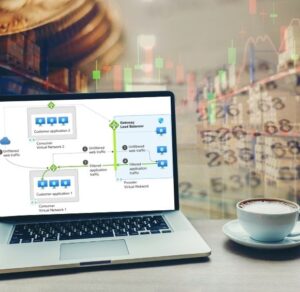
It is no secret that Excel formulas are quite hard to memorize. While you can somewhat remember the simpler ones, the complex ones are where things get tricky. But not to worry though as with a bit of hard work, you can actually memorize Excel formulas by heart.
That said, there isn’t a single “smart” way of remembering all Excel formulas. Multiple things can be done and in this article, we’ll take a look at what those things are. So, let’s get started.
How to Learn Excel Formulas Efficiently?
The following are some things you can do to remember Excel formulas better.
1. Use Mnemonics
For those who don’t know, mnemonics are basically memory aids that help you remember complex things by making them easier to recall. They involve creating some form of association.
Making acronyms and shorter phrases are part of mnemonics. When it comes to Excel formulas, you can abbreviate them to better remember the order of operations. For example, use “PEMDAS” to recall Parentheses, Exponents, Multiplication and Division, Addition, and Subtraction.
Doing so will help you remember things better as you’re essentially just memorizing a word, the rest will be recalled naturally with a bit of thought.
On the other hand, as we’ve mentioned, you can also create simple phrases or sentences in your brain, where each word or letter represents a part of the formula. For example, think “VLOOKUP” for Vertical Lookup.
2. Categorize Formulas
Organizing Excel formulas into categories based on their functions and purpose can help you better recall them. This way, you won’t have to deal with a plethora of formulas and can easily choose one from the category you need at the moment. Memorizing based on needs will become easier this way.
To exemplify this, here are a few general categories that you can make:
- Statistical Functions: Formulas for calculating AVERAGE, MEDIAN, and STDEV.
- Logical Functions: Formulas for IF, AND, OR, and NOT.
- Text Functions: Formulas for CONCATENATE, LEFT, RIGHT, and MID.
- Lookup Functions: Formulas for VLOOKUP, HLOOKUP, INDEX, and MATCH.
3. Create a Cheat Sheet
A cheat sheet is a sort of guide that has all the Excel formulas that you use the most or are more likely to use in the future. Let’s be honest, you can’t memorize all the Excel formulas in the world, so it’s best if you only focus on the ones that might be of importance to you.
To create a cheat sheet, keep the format simple and concise. The formulas should be on one side and the description or example on the other. Additionally, it is best if you save the sheet as a PDF on your computer. This way, you can print it out and keep it with yourself for when needed. You can also read the formulas aloud from time to time to memorize them effectively.
If you don’t want to keep the cheat sheet in a physical form with you, uploading it to a cloud-based service is always an option.
4. Use Excel’s Built-In Help
If you don’t yet know, Excel provides built-in help tools for those who struggle with formulas, like the Function Wizard. It lets you explore different formulas, even the ones that you don’t need. It also shows examples of their use.
Additionally, users can use it to identify and correct errors in their formulas since it highlights issues and suggests possible fixes. You can use these suggestions to understand formulas, which will help you memorize them better.
Besides this, pay attention to the tooltips that appear as you type a formula. These tips can guide you through the syntax and parameters, which is a pretty good way to learn in our opinion.
5. Leverage Online Tools and Resources
Online tools like the Excel Formula Generator can be great for learning and memorizing. It can generate any Excel formula for you in an instant. All you have to do is provide these tools with a description of what you want the formula to do.
Not only that but the tool also offers categories and preset descriptions for most of the commonly used formulas. By using it extensively, you will be exposed to various formulas repeatedly, which can help reinforce them in your memory.
Besides this, when you type in a description to generate a formula through the tool, you’ll know exactly what it does. This way, there’s a higher chance of long-term retention.
To demonstrate this, we selected an online excel formula generator tool and asked it to generate a formula to “determine the greatest common divisor (GCD) of two numbers.” Here’s what it came up with:
Tool: https://www.editpad.org/tool/excel-formula-generator
Apart from tools, other resources for learning Excel formulas can also be consulted. Websites like Coursera and Udemy offer comprehensive Excel courses. You can learn from a mentor and ask questions from them to clear your doubts.
6. Practice Regularly
This one is a no-brainer. Practice makes perfect and while the other ways can be great, this one is the most effective. There is nothing smarter than practicing.
Consistently write down the formulas that you need to memorize and use Excel as much as you can. This repeated exposure and hands-on experience will surely reinforce things in your memory.
Try to incorporate Excel into your daily life. Whether it’s for work, budgeting, or personal projects. Additionally, take on challenges that require varied use of Excel formulas. For example, let’s say you want to calculate the factorial of a given number. Rather than using Google or a calculator for it, try to do it with Excel, using formulas.
Final Words
Memorizing all Excel formulas may be challenging, but there are effective strategies to make the process easier.
Mnemonics, categorizing formulas, creating cheat sheets, utilizing Excel’s built-in help, and leveraging online tools are all useful techniques.
Besides this, practicing regularly and incorporating Excel into daily tasks are key to reinforcing memory. You can also consult resources like online courses and tools for in-depth learning. By employing these methods consistently, one can improve their Excel formula retention and proficiency.



